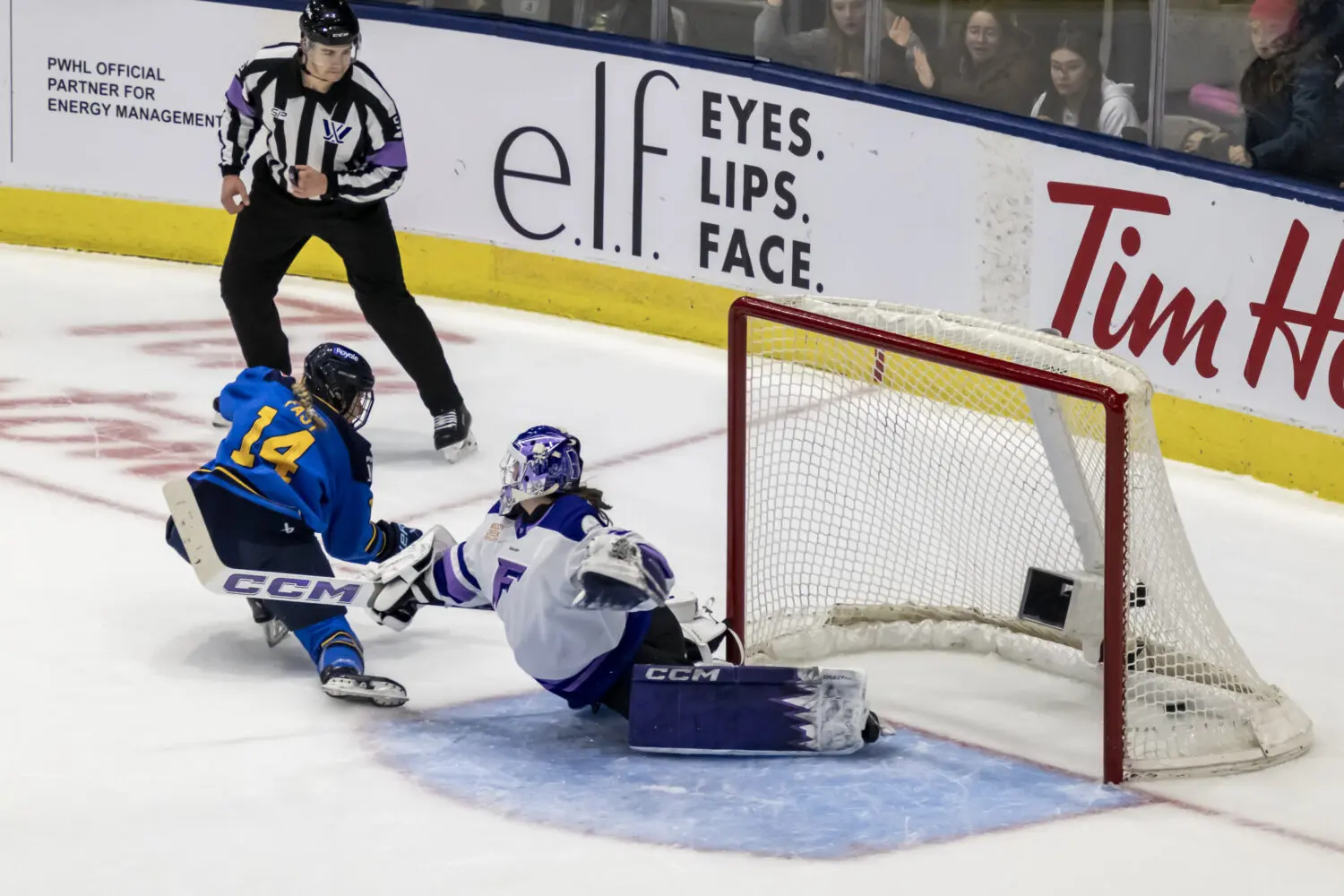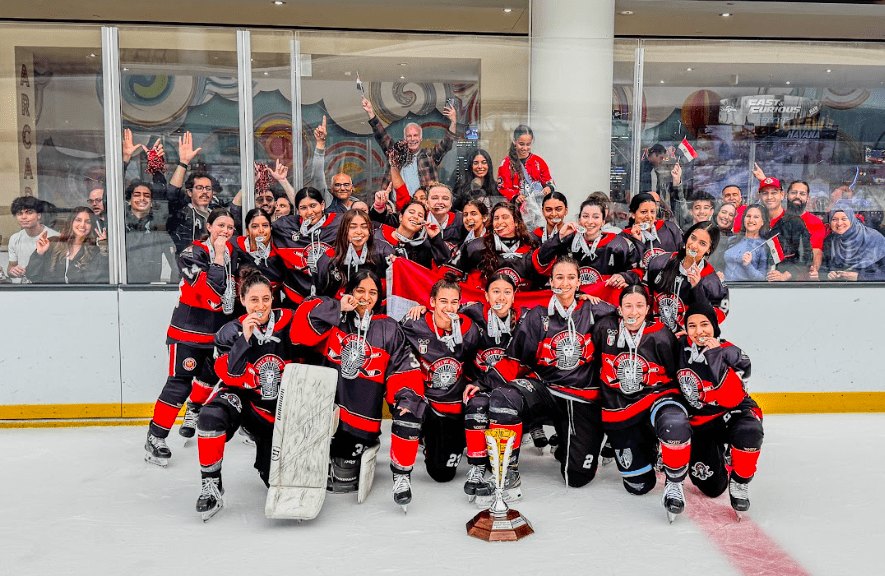
Named to the Canadian national women’s ice sledge hockey team for the 2015-16 season, it represents an empowering return to the game for Thea Hill. Competing at the right defense position, Thea Hill was born with Proximal Femoral Focal Deficiency (PFFD), resulting in the amputation of her left leg above the knee. Utilizing a prosthetic limb, she has not let it dampen her enjoyment of life.
“I had always been interested in the sport growing up. At first, I was scared to show up as I had never played it. At first, I was working out in an all-girls gym. This individual, Jim Babcock, was paying for his daughter’s gym membership and suggested to me that I should come and try it.”
When not on the ice, Hill is not only employed as a math teacher, she is a proud mother of two boys, two-year old Rory and a younger son, four month old Kit, who was born in May 2015. As a side note, her mom and her four month-old son were both on-hand as Hill attempted the Canadian national training camp, held in the Ottawa suburb of Stittsville,
“It has been great. The team was very flexible. To make the exception for me was fantastic. It is nice to know that you can still be a senior athlete.”
Having competed with the national team in prior years, her last time on the ice was actually in July 2014 at a development camp in Surrey, BC. Open to national team members along with local area players, it was a moment that Hill reflects on fondly,
“It was great. To have had it at home in Surrey meant there was no need to travel. It was nice to show off our facility, a great way to get some exposure locally.”
Along with Peggy Assinck, who have both proudly donned the jersey of the Canadian national team, the two are also teammates with the BC Surrey Eagles. Assinck comments on the experience of having Hill as a teammate,
“It is amazing to play with her. We have played on the Eagles for several years. It is a pleasure to have her out there. We were defense partners and as we trained together, we got to know each other. On our home team, we were the only two girls that played together, so we stick together. She is super hardcore (as a player).”
The feelings of admiration and respect are reciprocated by Hill, as the two are becoming ambassadors for the sport in BC, “Peggy Assinck is the only other girl on Team BC. She was the one who told me about this team. She is a really good role model, someone to check with about the rules of the game. She has become a good friend and a good support. It is fun to play with someone else at your level, who has your back.”
Competing in the 7th Annual Western Canada Sledge Hockey Tournament in Edmonton, Alberta, the two were part of a championship effort with the Eagles. Ending the tournament with an impressive 4-1 mark, they defeated the Edmonton Impact to claim the Matt Cook Memorial Cup. Despite such on-ice glories, the growth of the sport in Western Canada has not matched the same level as Ontario. Hill recognizes that the growth of the game in the Pacific would bring great potential but points out some current obstacles,
“A lot of our players come from Surrey or Vancouver. If the sport could grow in other parts of the province, it would be fantastic. If sledge hockey could be a lot more popular, it would be nice to see what we could do provincially.
We need to come back to a better way of recruiting. Ontario has a much bigger population than we do. Other amputees and wheelchair athletes in BC, none of them are playing sled. Why not? We need to get them interested and raise awareness.
Funding is important too. Some people on our team do not have jobs, they just live on disability. It is hard to save for tournaments and equipment. That is one area where funding would help.”
Of note, Assinck and Hill have also worked together on fund raising for travel expenses. One experience where fund raising was crucial involved the Women’s Ice Sledge Hockey International Jamboree in Philadelphia. Billed as the first major Women’s Ice Sledge Hockey International competition, it led to an IPC-sanctioned international tournament in 2014. Although the sport continues to grow, the costs are still a difficult reality of the game. While sponsorship is sorely needed, the event in Philadelphia resulted in a lifetime of memories for Hill,
“It was really neat. I had never been on a team before playing sledge hockey (internationally). It was nice to meet people from other countries. It was history in the making as it was happening. The sport was at its grass roots. Even though we had to pay, which was a little annoying, I felt that it was worth it.”
Assinck also commented on the cost of travel and its role as an aspect of the game, “We try to do fund-raising. The odd time, our ice time is paid for but it depends. Each athlete travels, as I fly in from Vancouver, it can be pretty expensive. We are working hard to try and make the game more accessible.”
“All quotes obtained first hand unless otherwise indicated”
Image obtained from Twitter (https://twitter.com/mrshillmath)
[adrotate group=”1″]
Related Articles
Categories
Recent Posts
[adrotate group=”2″]




